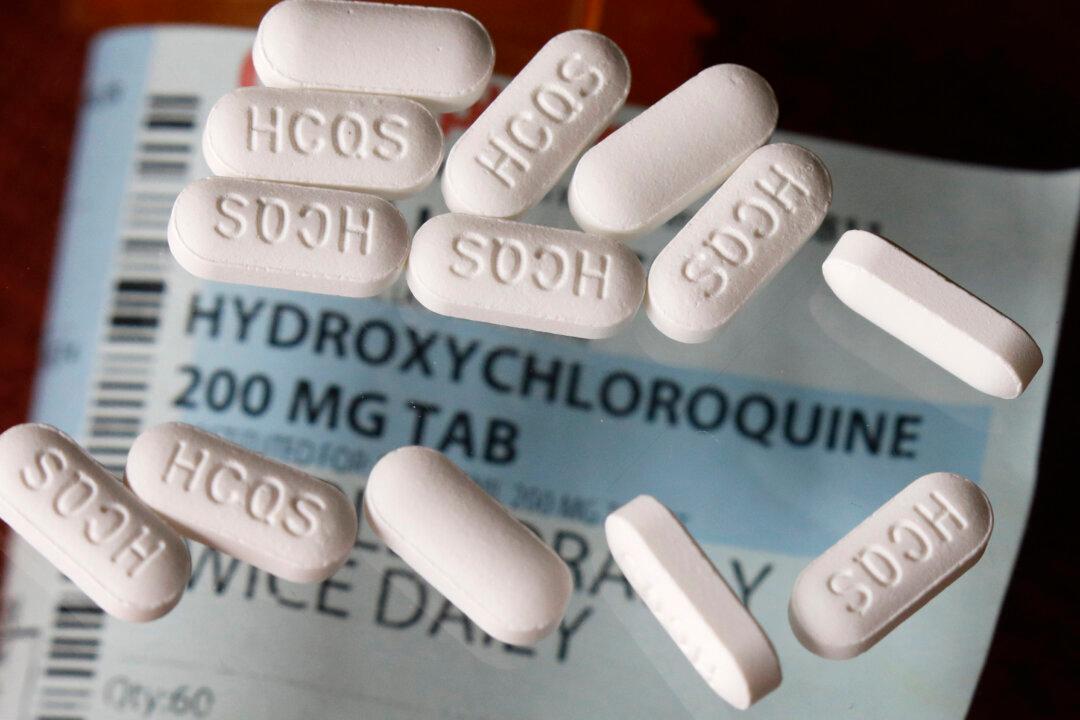President Donald Trump on Tuesday defended a video, banned by Twitter and other platforms, featuring doctors making positive statements about the efficacy of hydroxychloroquine as a treatment for COVID-19.
Trump was asked during a press briefing Tuesday whether he could clarify his position on the effectiveness of the drug, used for decades to treat conditions like malaria and lupus, in treating the CCP virus, the novel coronavirus that causes the COVID-19 respiratory illness.





